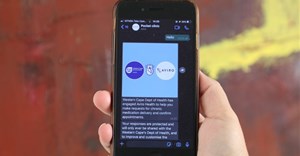Subscribe & Follow
Operators need clear strategy to combat free web-based apps

The increased penetration of smartphones and mobile broadband and the open availability of application programming interfaces (APIs) for handsets have created an environment in which the availability and use of mobile voice over IP and IP-based messaging applications is flourishing.
In 2012 the increase in smartphone penetration will cause voice and messaging revenue erosion of 3.9% and 1.6% in Western and Eastern Europe respectively.
"The success of OTT voice and IP-based messaging services such as WhatsApp and KakaoTalk has spurred mobile operators into seeking out their own legitimate role in IP-based communications," said Pamela Clark-Dickson, senior analyst at Informa Telecoms & Media. "Mobile operators are under pressure to continue being recognised by their subscribers as the main provider of voice and messaging services on mobile devices."
A changing scene
The mobile world today is facing the same issues that the fixed world has been facing for over a decade - telephone lines are turning into Internet connections, phones are turning into computers. Informa estimates that every 10 percentage points increase in smartphone penetration could cost Western European operators US$1.19bn in voice and messaging revenues and US$306m for their Eastern European counterparts - between 0.5% and 0.6% of their service revenues from voice and messaging.
However the OTT IP-based communications market became increasingly crowded in 2011 and providers of these services will face challenges of their own. In addition to mobile operators pursuing their own IP-based communications strategies, OTT providers' services do not interoperate and most do not yet generate meaningful revenues.
Operators are implementing a combination of five different strategies in order to face up to the OTT-communication threat. "Unfortunately for them, most of these strategies are short-sighted as too much emphasis is given to fighting OTT rather than satisfying their customers," said Dario Talmesio, principal analyst at Informa Telecoms & Media.
"Operators wanting to remain relevant to their customers need to give them internet-style communication services, as voice and messaging as we know it will soon be a thing of the past."
Source: Informa Telecoms & Media

Informa Telecoms & Media aims to deliver strategic insight founded on global market data and primary research. The company works in partnership with its clients, informing their decision-making with practical services supported by analysts.
The company conducts primary and secondary research on the latest trends impacting the mobile communications, fixed communications and TV sectors, on a global basis. ITM's market intelligence services - World Cellular Information Service (WCIS), World Broadband Information Service (WBIS) and the Intelligence Centre - to give clients access to market forecasts and key performance indicators (KPIs), as well as detailed analysis and exploration of trends.
Go to: http://www.informatm.com







